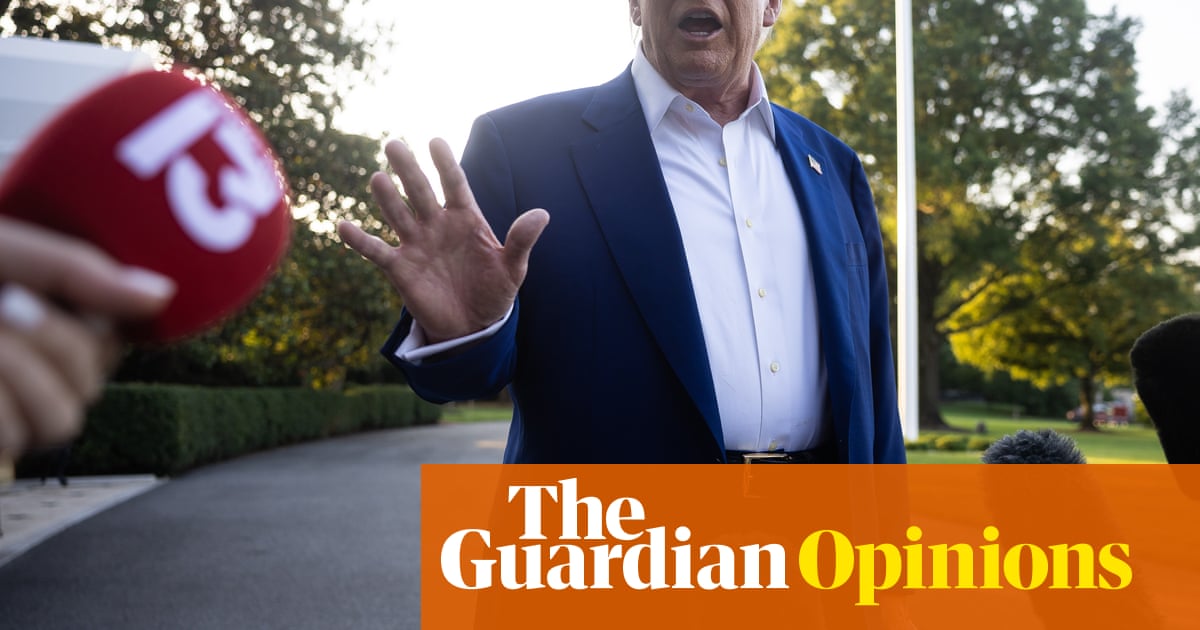Idid not get out of bed this morning expecting to praise the public use of an expletive, but such is 2025. If any president was going to break this presidential norm,as NPR put it, it was always going to be Donald Trump.
“We basically have two countries that have been fighting so long and so hard that they don’t know what the fuck they’re doing,” the president told a group of reporters this week. “Do you understand that?” he asked, before storming off.
It appears to be the first time a president has deliberately used the F-word live on camera to a press scrum or in a public forum, instead of being “caught” using the term accidentally on a hot mic (even that has only happened a handful of times). Cue plenty of puns from journalists about the “dropping of the F-bomb”.
For the record, Trump actuallyused the F-word about Iran in 2020, but the slightly delayed radio broadcast bleeped it out. Plus, asthis 2016 video compilation shows, it’s not unusual for him to swear.
But what was different about this time – coming as it did at a moment of heightened global anxiety about military escalation – is that it came across as … authentic. Many people watching will have felt, heard and even shared that frustration about Israel and Iran’s alleged breaking of the ceasefire. Trump’s swearing made the point more forcefully than any diplomatic “disappointment” could have done. It wasn’t eloquent, but I believed it.
We know other presidents – such as Lyndon Johnson, and especially Richard Nixon – swore in private. They wouldn’t have dreamed of risking the reputational damage to do so in public, and would have had to apologise if they did. No British prime minister has ever said “fuck” publicly to my knowledge. Few world leaders ever have.
Which is potentially part of the problem. The most common complaint about the political elite is that they’re out of touch; that we can’t trust a word that comes out of their mouths because it’s all untrustworthy scripted spin. Yet at the same time we believe they’re swearing like sailors – and saying what they really think – behind closed doors (a perception bolstered by iconic roles such asPeter Capaldi’s Malcolm Tucker, the foul-mouthed spin doctor in The Thick of It, or the blue-mouthed Roger Furlong from Veep.)
Of course, swearing doesn’t equate to honesty. And, in Trump’s case, the obscenity only masked his own complicity in creating the situation that frustrated him – from pulling out of the Iran nuclear deal in 2018 to his “monumental” airstrikes on Iranian nuclear facilities over the weekend. But my point is that the public clearly doesn’t trust the polished and sanitised scripts that characterise so much political speech.
I’m not suggesting world leaders all suddenly disrespect the gravitas of their office. Can you imagine Keir Starmer being encouraged to swear? He’d sound like a headteacher attempting to rap. What I am saying is there’s power in judicious swearing.
You want to appear more human to voters? Act more like one. YouGov polling reported in April revealed that just8% of Britons never swear. Perhaps an occasional curse or two would allow politicians to ally themselves with the 92% of us who do.
Linguistic norms are always changing. For six years, I wrote aregular columnfor the Guardian’s Mind your language section. During that time, I saw changes that would incense any purist. For instance, the BBC made even less use of those with received pronunciation accents and started broadcasting more voices that really sound like people across the country. Such “real” accents are supposed to make the institution seem less remote and more trustworthy. The same is true of the institution of politics. Sounding more like real people does nobody any real harm.
If the stakes are literally life and death, and people aren’t listening, a well-placed, truly meant expletive will wake everyone up. At time of writing, the fragile ceasefire between Israel and Iran is holding. Maybe the F-bomb did the job after all.
Gary Nunn is a freelance journalist and author
